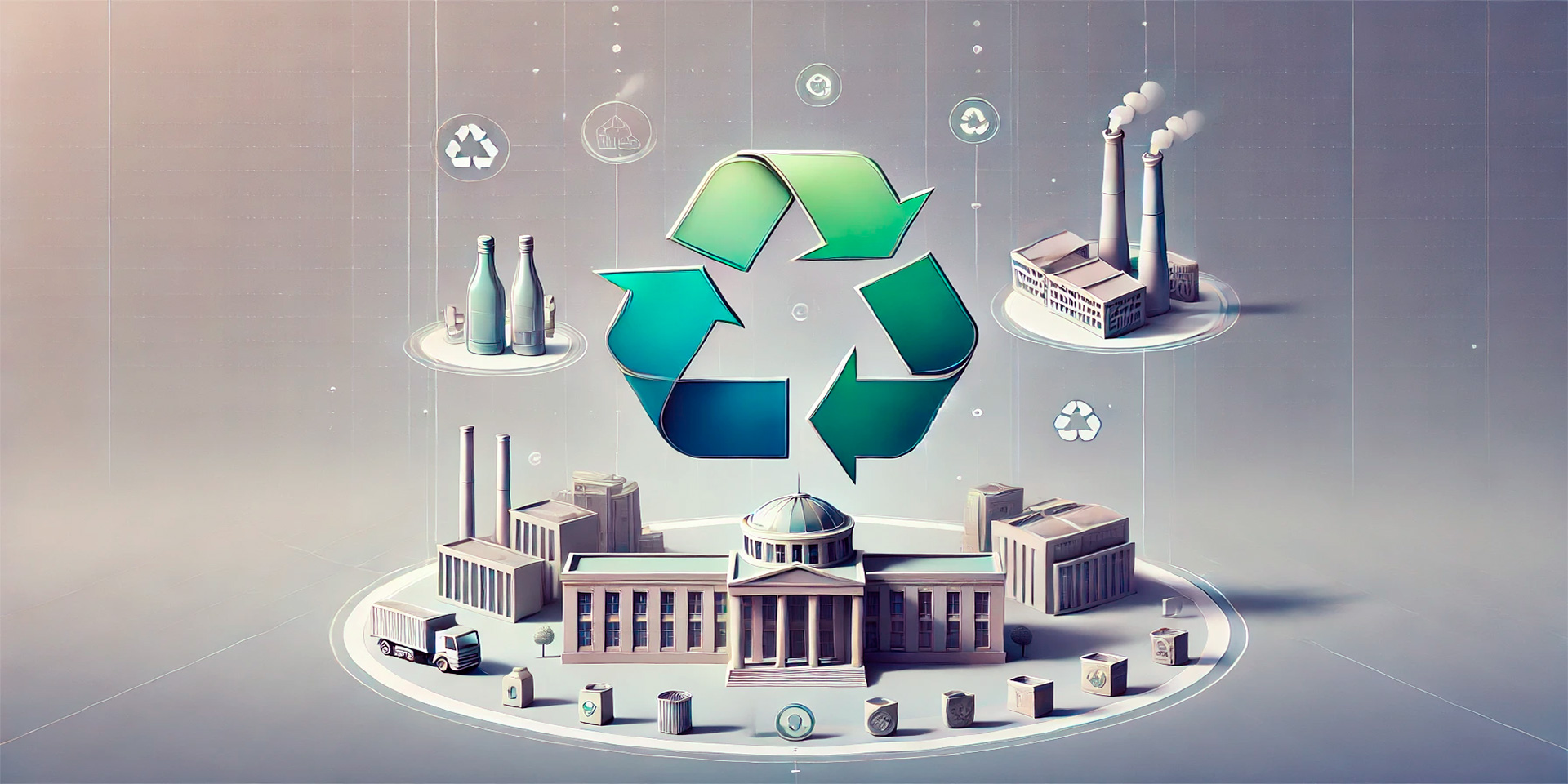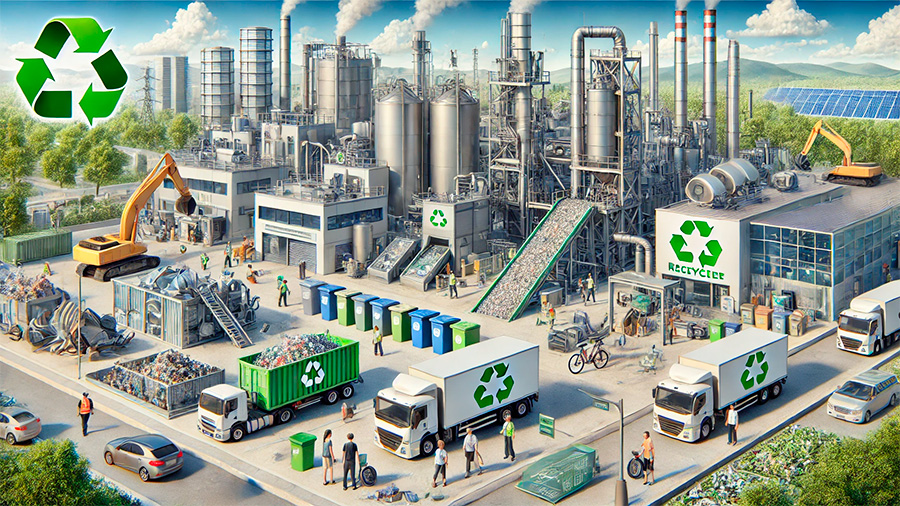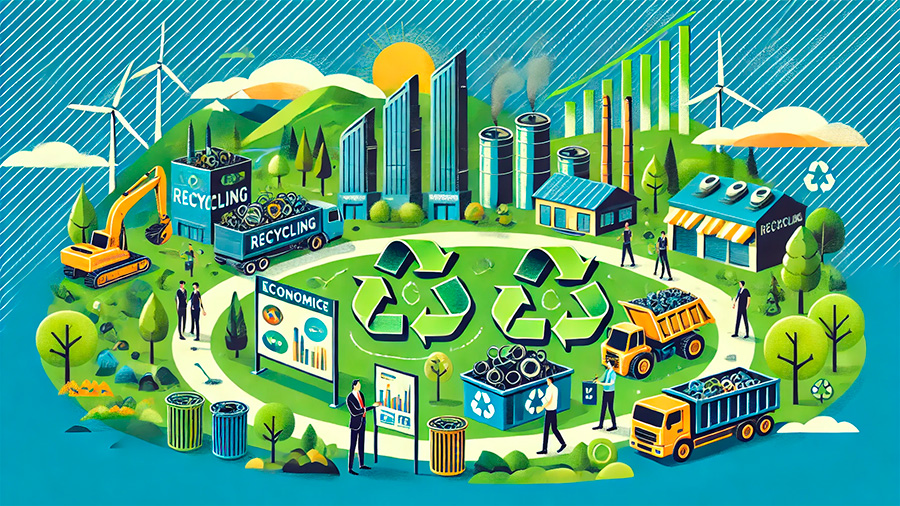Recycling Redefined: The Government’s Role in Shaping a Sustainable Tomorrow

As the world grapples with the growing challenges of waste management and environmental pollution, recycling has emerged as a critical solution to reduce waste, conserve resources, and mitigate the impact of landfills. However, scaling recycling efforts to effectively tackle the global pollution crisis requires collaboration between governments and the private sector. This article explores how governments are supporting the future of waste recycling through policies, investments, and partnerships, and how these efforts can help drive the transition to a more sustainable and circular economy.
The Need for Scaled Recycling Solutions
Waste management has become a major issue globally, with plastic, e-waste, and industrial waste posing significant environmental challenges. Despite advancements in recycling technologies, a large percentage of waste still ends up in landfills or is incinerated, contributing to environmental degradation. To combat these problems, the recycling industry must scale its operations and improve the efficiency of waste collection, sorting, and processing.
Scaling recycling solutions involves increasing the capacity to process more materials, ensuring that recycling rates rise, and making recycling systems more accessible and cost-effective. However, to achieve this on a global scale, substantial investments in infrastructure, technology, and innovation are needed. Government support plays a pivotal role in making this possible.
1. Government Policies Promoting Recycling
Governments around the world are increasingly recognizing the need for robust recycling policies that encourage the reduction of waste, promote recycling practices, and ensure that recycling systems are economically viable. These policies are often designed to support the recycling industry directly, but they also create broader incentives for businesses and consumers to adopt more sustainable practices.
Key government policies that support recycling:
- Extended Producer Responsibility (EPR) Programs: EPR laws require manufacturers to take responsibility for the end-of-life management of their products, including packaging, electronics, and plastics. By shifting the financial burden of recycling to producers, these programs encourage manufacturers to design products that are easier to recycle and reduce waste.
- Recycling Targets and Regulations: Many countries have set ambitious recycling targets for specific materials, such as plastics, metals, and paper. These targets force industries to invest in better waste management practices and improve recycling rates.
- Recycling Incentives and Subsidies: Governments provide tax credits, grants, and subsidies to encourage businesses to invest in recycling technologies, infrastructure, and operations. These financial incentives make recycling more attractive and economically feasible for companies.
- Deposit Return Schemes (DRS): Deposit return schemes are increasingly being implemented for beverage containers and other recyclable items. Consumers pay a deposit when purchasing products and receive it back when they return the empty containers for recycling, encouraging more responsible consumption and recycling behavior.

2. Investing in Recycling Infrastructure
Scaling up recycling efforts requires significant investment in infrastructure—everything from waste sorting facilities to advanced recycling plants and waste-to-energy systems. Government investments in these areas are essential for making recycling systems more efficient, reducing contamination, and increasing the overall volume of waste that is recycled.
How government investments drive recycling infrastructure:
- Recycling plants: Governments can fund the construction of state-of-the-art recycling plants that can process a wide range of materials more efficiently and effectively, ensuring higher recycling rates.
- Waste sorting facilities: Investment in automated sorting facilities can streamline the recycling process by sorting recyclable materials more accurately, reducing contamination and increasing the purity of recycled materials.
- Public recycling programs: Governments can fund and support public recycling programs that make recycling more accessible to households and businesses, including curbside collection, public recycling bins, and local drop-off centers.
- Research and development (R&D): Funding R&D in new recycling technologies, such as chemical recycling or biodegradable plastics, helps improve recycling rates and creates new opportunities for waste recovery.
3. Public-Private Partnerships: Strengthening the Recycling Ecosystem
While government policies and investments are critical for scaling recycling, the private sector also plays an essential role in driving innovation, expanding recycling capacity, and improving the efficiency of recycling systems. Public-private partnerships (PPPs) bring together the resources, expertise, and capabilities of both sectors to solve complex challenges in waste management.
How public-private partnerships benefit recycling efforts:
- Leveraging expertise: Public-private partnerships allow governments to leverage the innovation and efficiency of private companies in developing new technologies and expanding recycling operations.
- Co-investment in infrastructure: Governments can collaborate with private companies to co-invest in recycling infrastructure, sharing the financial burden and improving the scale and reach of recycling efforts.
- Corporate responsibility programs: Many corporations, particularly those in the consumer goods and packaging industries, partner with governments to meet recycling targets and reduce the environmental impact of their operations. These partnerships help align corporate sustainability goals with broader public policy objectives.
4. Education and Consumer Engagement
A critical component of scaling recycling efforts is engaging consumers and educating them about the importance of recycling and how they can participate in the process. Government-led public awareness campaigns, along with corporate initiatives, help inform citizens about proper recycling practices, waste reduction, and the environmental benefits of recycling.
How education and engagement support recycling:
- Public awareness campaigns: Governments can run campaigns to educate the public about recycling best practices, proper sorting techniques, and the benefits of reducing waste.
- Incentivizing recycling behaviors: Financial incentives, such as deposit return systems or rewards for recycling, can motivate individuals to participate in recycling programs.
- Collaboration with educational institutions: Schools, universities, and research centers can partner with governments to promote sustainability practices and create programs that encourage the next generation to engage in recycling efforts.

The Economic and Environmental Benefits of Scaling Recycling
Scaling up recycling efforts has significant economic and environmental benefits. Increased recycling rates can create green jobs, stimulate local economies, reduce the need for virgin raw materials, and decrease the environmental impact of waste. The combined efforts of governments, private companies, and consumers can help close the loop on resource consumption and contribute to a more sustainable, circular economy.
1. Job Creation and Economic Growth
As recycling programs expand, so does the demand for workers in the waste management and recycling industries. From collection and sorting to processing and logistics, recycling offers a variety of job opportunities in sectors that are essential for environmental protection. Additionally, investment in recycling infrastructure can stimulate local economies by generating economic activity and supporting the development of new businesses focused on sustainability.
Economic benefits of recycling:
- Green jobs: Recycling creates jobs in sorting, processing, and managing recyclable materials. This sector is expected to grow as more emphasis is placed on sustainability and circular economy practices.
- Boost to local economies: Investments in recycling infrastructure and operations generate local economic growth by supporting businesses in the recycling supply chain and encouraging innovation.
- Revenue generation: Recycled materials can be sold to manufacturers, creating revenue streams that benefit local economies and businesses involved in the recycling process.
2. Reducing Environmental Impact
The environmental benefits of scaling recycling efforts are significant. Recycling reduces the amount of waste that ends up in landfills, conserves natural resources by reducing the need for raw material extraction, and lowers energy consumption. Governments and private sectors working together can significantly reduce carbon emissions, contribute to environmental preservation, and address the global pollution crisis.
Environmental benefits of recycling:
- Less waste in landfills: By recycling more materials, less waste ends up in landfills, reducing pollution and the environmental footprint of waste disposal.
- Conservation of resources: Recycling reduces the demand for raw materials, conserving resources such as metals, paper, and plastics, which can take years to replenish.
- Reduced carbon emissions: Recycling requires less energy than producing new products from raw materials, helping to lower greenhouse gas emissions and combat climate change.
Conclusion
Scaling waste recycling efforts is critical for addressing the global pollution crisis and moving toward a more sustainable, circular economy. Government policies, investments in infrastructure, public-private partnerships, and consumer engagement all play essential roles in improving recycling rates and reducing waste. As recycling efforts grow, so do the economic and environmental benefits, creating a cleaner, more sustainable future. By continuing to prioritize recycling and supporting innovations in waste management, governments and the private sector can help mitigate the harmful effects of waste and work toward a more sustainable world for future generations.
